Alzheimer’s is a progressive neurological disorder that affects memory and cognitive function. Even though there is currently no cure for the disease, new research suggests that light therapy may help to improve the symptoms of the condition.
There’s a lot of research being conducted on light therapy as a possible treatment for Alzheimer’s disease and some early studies have shown very promising results.
It has been found in the studies that patients with Alzheimer’s who received light therapy showed significant improvements in their cognitive function and memory recall ability. The therapy also appeared to be well-tolerated by patients, with no side effects reported.
What is Alzheimer’s Disease ?
Alzheimer’s disease is a type of dementia that causes problems with memory, thinking, and behavior. Symptoms usually develop slowly and get worse over time, becoming severe enough to interfere with daily tasks. Although there is no cure for it, treatments can help slow the progression of the disease and improve quality of life.
Alzheimer’s disease is the most common form of dementia, accounting for 60 to 80 percent of all cases. Dementia is a general term for memory loss and other cognitive impairments that interfere with daily life. Alzheimer’s disease progresses slowly in three general stages: mild (early stage), moderate (middle stage), and severe (late stage).
In the early stage of Alzheimer’s disease, people may experience mild memory loss and some changes in mood and behavior. As the disease progresses, they may have difficulty with language, lose interest in hobbies and activities, and become withdrawn. In the late stage, they may need 24-hour supervision and assistance with basic activities of daily living, such as eating and bathing.
Alzheimer’s disease is a degenerative brain disorder that causes progressive deterioration of cognitive function, including memory, attention, language, and reasoning. The disease typically affects older adults, but it can occur in younger people as well. Early-onset Alzheimer’s disease accounts for about 5 percent of all cases.
Treatment Options for Alzheimer’s Disease.
There are treatments available for Alzheimer’s disease that can help to manage the symptoms and slow down the progression of the condition.
The most common treatment approach for Alzheimer’s disease is a combination of medication and lifestyle changes. Medications can help to improve memory, communication, and thinking skills. They may also help to control changes in mood and behavior.
Lifestyle changes can include things like getting regular exercise, eating a healthy diet, and participating in stimulating activities. These changes can help to improve symptoms and slow down disease progression.
In some cases, other treatments may be recommended. These can include neurostimulation techniques, cognitive training, and support groups.
Overall, treatment for Alzheimer’s disease is aimed at managing symptoms and slowing down disease progression. There is no cure for the condition, but these treatments can help to improve the quality of life.
There is also a very effective therapy that experts have started to recommend lately which is light therapy. Light therapy is a promising new treatment option that is being studied for its potential to improve symptoms and slow disease progression. It shows promise as a potential treatment for Alzheimer’s disease.
What Is Light Therapy ?
Light therapy is a type of treatment that uses exposure to artificial light to improve mood and overall well-being. This therapy can be used to treat conditions such as seasonal affective disorder (SAD), depression, sleep disorders, and certain types of pain. Light therapy is also sometimes called phototherapy or photobiomodulation.
The theory behind light therapy is that exposure to artificial light can help regulate the body’s natural sleep-wake cycle and improve mood. The body needs exposure to sunlight or bright light during the day to stay awake and alert. When it starts to get dark outside, the body begins to produce melatonin, a hormone that makes you feel sleepy.
Science has shown that the wavelengths in light photoactivate mitochondria in our cells to produce more energy (ATP). When cells have extra energy, they tend to accelerate healing and optimize for longevity. Studies show that the brain reduces inflammation when light is used to target the cranium which also improves Alzheimer’s symptoms.
Exposure to artificial light during the day can help prevent the body from producing too much melatonin. This, in turn, can improve mood and overall well-being. Light therapy is most commonly done using a light box that emits bright white light.
Is Light Therapy Treatment Useful For Alzheimer’s Disease ?
There is growing evidence that light therapy is an effective treatment for Alzheimer’s disease. A number of studies have shown that exposure to bright light can improve cognitive function in people with Alzheimer’s, and it can help to slow the progression of the disease.
Light therapy works by increasing levels of the brain chemical serotonin, which has been linked to better cognitive function. It helps to reduce inflammation in the brain, which has been implicated in the development of Alzheimer’s. Light therapy can improve cognitive function in people with Alzheimer’s disease, and it also helps to slow the progression of the disease.
One study published in the journal Alzheimer’s & Dementia: The Journal of the Alzheimer’s Association looked at the effects of blue light therapy on people with mild to moderate Alzheimer’s. The participants were exposed to blue light for one hour per day for four weeks. The results showed that the blue light therapy significantly improved the participants’ sleep quality and reduced their levels of agitation.
Many studies looked at the effects of red and near-infrared light therapy on people with Alzheimer’s. The participants were exposed to the light for 30 minutes per day for four weeks. The results showed that the light therapy improved the participants’ cognitive function and reduced their levels of inflammation.
These studies suggest that light therapy is a promising treatment for Alzheimer’s. If you are considering trying light therapy for Alzheimer’s, you can speak to your doctor for light therapy or get a light therapy device at home to try it out yourself.
Best Light Therapy Device For Alzheimer’s Disease
If you’re looking for a top-of-the-line light therapy device, Dermabeam may be the perfect option for you. Their device uses LED light therapy to provide a variety of benefits, including reducing inflammation, improving skin quality, and boosting energy levels.
LED light therapy devices from Dermabeam are a great treatment option for Alzheimer’s disease. They are also one of the most affordable light therapy devices on the market, making them a great option for budget-conscious shoppers. Check out light therapy products from Dermabeam today!








